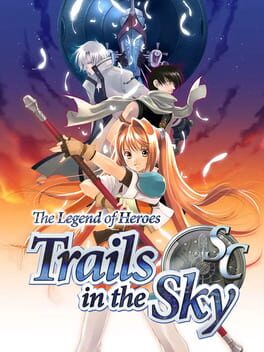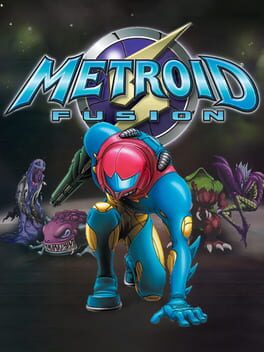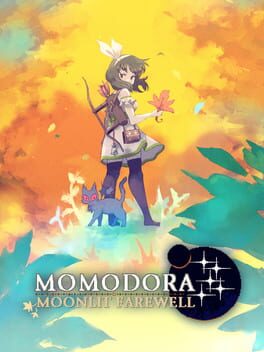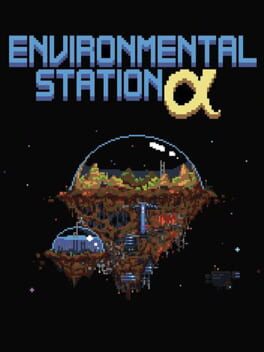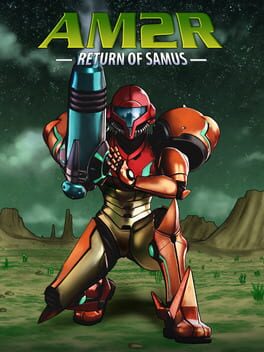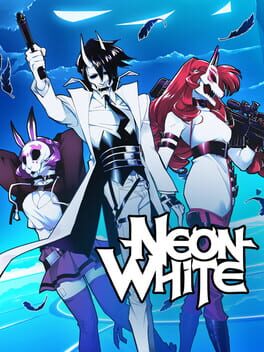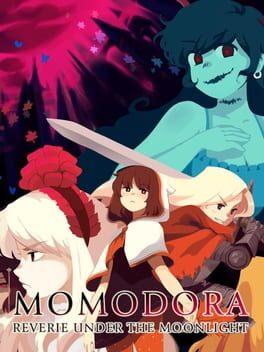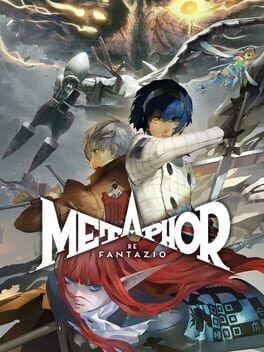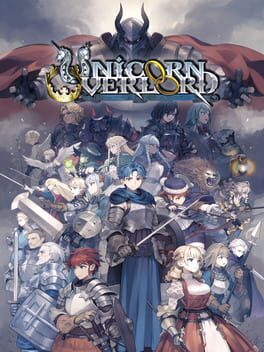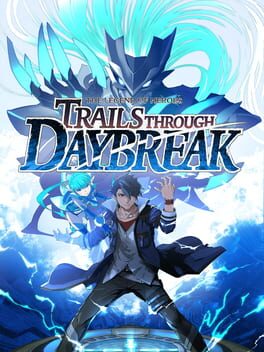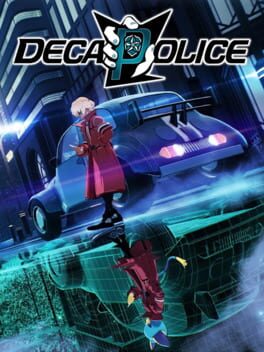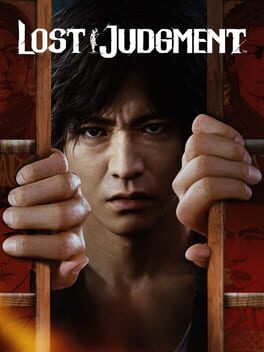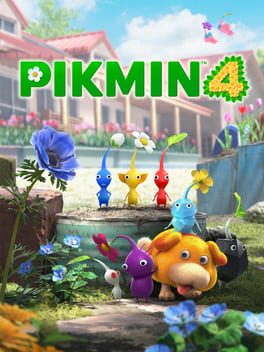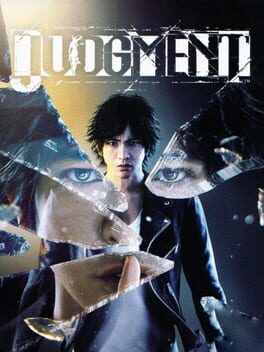Libra0w0
24 reviews liked by Libra0w0
Signalis
2022
This review contains spoilers
Making a throwback title to an older style of video game that is no longer nearly as prevalent is a difficult thing. Comparisons to your inspirations are inevitable and regardless of how good you are or how original your concept is, you will inevitably be called a clone - Dusk to Quake, Yooka-Laylee to Banjo-Kazooie, and in the case of rose-engine's Signalis, Resident Evil and Silent Hill. Developed primarily by two people, Yuri Stern and Barbara Wittmann, Signalis is perhaps the most popular of the recent indie push for a return to classic survival horror gameplay. While the genre has been seeing a revival broadly speaking with entries of all sorts of budgets, the independent space has certainly stuck to being more "classical", and that's reflected in Signalis in many ways.
Signalis, then, takes inspiration from these old-school horror games in the best of ways. The game plays like a strange combination of Resident Evil and Silent Hill, and as someone who has played the vast majority of both franchises, I can safely say that rose-engine took the right parts of both franchises to combine into one thoroughly satisfying package. Signalis has the fixed camera angles that both games often had but features the more hardcore, difficult combat of Resident Evil with the esoteric, symbolic puzzles of Silent Hill. While the surface-level gameplay elements of these franchises are aped, rose-engine delves deeper and lifts some of my favorite design elements from those games. The beloved crimson head system from the Resident Evil remake has been brought over - while flares are not nearly as scarce as kerosene and you won't be panicking nearly as much over which enemies are advantageous to kill, this is a system that I am ecstatic was brought over. The developers demonstrate a remarkable knowledge of what makes a survival horror game fun to play. You're not given nearly enough ammo to take every enemy on, and you're given fairly scarce albeit manageable inventory space (the original release was far stricter!). On tougher difficulty modes, Signalis can be a real challenge. I was barely scraping by a lot of the time, and while the game seems to think I'm a more aggressive player based on the ending I got, I like to think I was fairly conservative with the ammo I used and focused more on defensive items and evasion instead of firearm combat. I always appreciate a survival horror game that can royally kick my ass to hell and back and while Signalis is hardly the most difficult I've ever played (just try Resident Evil Zero on hard mode), I appreciated that I was constantly on my feet. Stealth is also a bigger deal than most survival horror games I've played - while there are stealth elements in say, Silent Hill, with the flashlight being more likely to attract enemies, in Signalis it's far more important. Running for even a split second can attract enemies with a screech and if one wishes to avoid confrontation (and you will) you need to be able to pace yourself. Even if you don't see enemies, no room is safe, because many of them can crawl out of the floorboards and invade areas you previously thought safe. This especially gets turned on its head when you're forced to enter dark rooms where you're forced to use the flashlight, immediately alerting every enemy in the general vicinity to your exact location. Puzzles are more complex than the average Resident Evil puzzle, and a lot of them consist of what I call "maintenance puzzles". The best maintenance puzzles make you feel like you're solving a real technical problem, and Signalis does this quite well! It especially makes sense considering what Elster is designed to do, and these puzzles never get as bad as say, Resident Evil 3's water puzzle. Meanwhile, it still has many symbolic puzzles in the vein of Silent Hill and these can often be quite difficult too. Many of these, such as an astronomy/tarot puzzle near the end, require you to remember information across long distances and while I don't think these are unfair, you certainly should bring a notepad with you. I especially enjoyed the puzzles that required toying with Elster's radio, as those felt especially immersive. If there's anything at all I found annoying about this game, it's that it's too "live" if that makes sense. Picking up an item in an RE or SH game temporarily pauses the game so you won't be ambushed by enemies while grabbing it. This not only gives the player brief respite but it also makes it tougher for enemies to get cheap shots at you. Signalis doesn't do this and it makes running into populated rooms to grab an item and leave unnecessarily more difficult in ways that just feel cheap instead of fair. This is the only real issue I have with the gameplay though, it really is exceptional.
If you've had anyone elevator pitch Signalis to you, it is most likely for the narrative if anything else. Not to keep comparing the game to its inspirations, but playing through Signalis made me feel like how players must've felt playing through Silent Hill 2 for the first time back in the early 2000s before members of Team Silent ended up explaining their intentions and more unclear parts of the narrative. Rose-engine certainly doesn't intend to give you answers; Signalis is a rather confusing experience and that works for its benefit. More A24 than Adrian Lyne, the game's cutscenes can often be a barrage on the senses. Because this is how the game conveys its narrative, it's difficult to separate the writing from the presentation, but I will say these cutscenes are extremely stylish and sear memorable imagery into your mind for months to come. That's not to say Signalis is an anvil, in fact, it's a rather subtle experience with many clues and pieces of symbolism dripping through the cracks in the experience. There are a lot of questions posed by the game, both literal and philosophical, and I was fairly swept away thinking about its combination of literary references, worldbuilding, and non-verbal character development. It's rather strange, actually, that Elster is a character I felt connected to by the end, despite her speaking so few words. Her relationship with Ariane Yeong, a forbidden love never meant to be, is something I connected to a lot. I suppose I'm a sucker for two lovers coming together despite their circumstances, especially if it ends badly for them a la Romeo and Juliet. I also quite liked Adler as an antagonist; his micromanaging nature slowly coming apart and being driven insane due to living the same days over and over again and gradually coming to that realization is truly terrifying. It's deeply emotional and deeply resonant, and the game toys with you as you play, such as having a very convincing fakeout ending midway through. The game doesn't hold your hand and doesn't explain itself, and while I believe I've come to a solid conclusion as to what happened, I also think there are still a lot of gaps in my understanding that'll likely be filled in over the years as Stern and Wittmann become more loose-lipped as all creatives inevitably do. I also appreciated the amount of worldbuilding expended for each of the Replika units, such as their personality traits, what they're made for, their distortions, and found the concept of each of them requiring a "fetish object" to stay sane particularly interesting. If I had to give any sort of criticism, it's that the supporting characters don't exactly have the same resonance or involvement as say, Silent Hill 2's characters do. They're not irrelevant and they work very well within the game's intended contexts, but we don't get to know them nearly as closely or intimately and therefore it doesn't hit as hard when they meet their inevitable conclusions. This is a relatively small nitpick, as their sequences are fairly effective nonetheless, but I wish we had gotten to know them more than we did. If you can't tell, I'm somewhat struggling to explain why Signalis, as a narrative, was so effective for me, but I'd say it's a master in tone and implication. A lot of the political conflicts within its world setting are implied and the game gives you just enough to keep you thinking about how the mechanics of its world work. The game never lets up and speaks to the depths of the soul in the same way the best Silent Hill games do, and while it might not always stick the landing, it still gets a gold medal in those departments.
Another one of the most notable elements of Signalis is its presentation. Designed to resemble the classic survival horror games of yore with low-fidelity graphics, low-poly models, and pixel art sprinkled with a dollop of anime-inspired character designs, Signalis manages to be as stellar to look at as it is to play. At first, the game's environments appear to be entirely two-dimensional, similar to the pre-rendered backgrounds that said PSX classics had, but in reality, they are three-dimensional environments carefully crafted to look exactly like a 2D background and that illusion never breaks. When the game smashed my ignorance into a red paste by zooming into a 3D closeup of what I had previously assumed was a 2D object, my jaw nearly hit the floor. While this does explain the remarkable amount of fidelity the game can achieve, knowing this fact doesn't take away from it, rather it makes you appreciate the impressively precise staging of each room to make things appear the way they do. This is the Unity engine used as brush and canvas. The game's lighting system is great as well - your flashlight will beam through often poorly lit areas as you pad quietly through bloodstained halls, with inky black shadows twisting and contorting into figures that may or may not be unspeakable horrors lurking right out of your peripheral. I quite like the blur/glitch effect on the enemies, as it helps make them feel unworldly and inhuman. The user interface was also a particular favorite of mine. Its appearance as a display showcasing Elster's vitals and core functions not only once again reminds me of Resident Evil but it's more immersive than that franchise's offerings, mimicking an old-style CRT display. The game's cutscenes are also impeccably directed. These cutscenes blend 3D graphics and 2D spritework fairly seamlessly and are edited together intelligently with jump cuts, match cuts, intertitles, and many visual homages to its cinematic inspirations (such as a particular shot of Elster's eye fluctuating between many colors, a clear homage to the iconic psychedelic eye shot from Stanley Kubrick's 2001: A Space Odyssey). The cinematography in these scenes is insane - while a lot of games nowadays put a lot of effort into their camerawork, few feel as artistically staged as what rose-engine has managed to achieve here. It seems that whenever there needed to be a wide shot, a wide shot was done. A close-up? It was done. The deliberate and meticulous nature of the shot composition, editing techniques, and sound design made me nearly squeal as a film buff myself. When these cutscenes are equally as responsible for conveying the narrative as the writing itself, it is of utmost importance that they are of a quality of this caliber.
Speaking of the sound design, the game's score was composed as a collaboration between two musicians, 1000 Eyes and Cicada Sirens. What results is a mixture of sounds old and new, inspired and original. The comparisons to the works of Akira Yamaoka are inevitable; honestly, it's difficult for artsier horror games to escape his overwhelming influence, but Eyes/Sirens manage to make a score that takes from the ethereal, soul-sucking atmosphere and gnashing, industrial hellscapes that Yamaoka was so masterful at delivering and manage to take their own spin on it. No doubt about it, Signalis' score was heavily inspired by the games of old, as all of the game is, but this is not to say it is derivative. While the game is filled with electronic undulations and industrial grinding, there is a warmth present throughout via a lonely piano underscoring the game's emotional climaxes. Tracks such as "Die Toteninsel (Emptiness)" and "The Promise" are emotionally crushing songs that one cannot hear without flashing back to the game's most impactful moments and will go down as some of the most iconic tracks in horror gaming history. I quite liked the frequent manipulation of human noises, such as the distorted breathing on "Cigarette Wife" and glitched shouting on "Become Whole Again". While saferooms in survival horror games are often associated with relaxing, yet tense themes (you are safe now, but you cannot stay), Signalis' variant feels downright hostile in a way I love. When the game grinds metal and gears for combat, it is when it is at its most reverent to Yamaoka, and while these tracks are extremely tense and effective in the moment, I wish they featured more of the subtle melodies that his industrial tracks tended to have, with the particular exception of "Riot Control" which appears to have an orchestral chorus ripped straight from the depths of hell. Out of the game's nearly two hours worth of music, however, my favorite track is by far "Sea Smoke", a relatively simplistic track featuring a piano and atmosphere that reaches deep within my soul and its combination of beauty, sorrow, and horror cannot be properly conveyed. All in all, Eyes/Sirens as a duo have managed to produce a score that, for all intents and purposes is executed perfectly for what the game needs. While I might have some nitpicks about the originality of the game's more industrial combat themes, these are just that: nitpicks. After all, if they work perfectly for what the game needs, why complain?
Signalis was a surprise. I don't think anyone expected the game to be nearly as game-changing as it ended up being. Survival horror is a more niche genre than many realize, with many games falsely advertising themselves or being branded by the wider gaming community as "survival horror" without any consideration as to how the fathers of the subgenre actually played. In the public consciousness, the genre has long since been dominated by Resident Evil and Silent Hill, the former of which switches between survival horror and action horror regularly on a game-by-game basis and the latter of which has not seen an uncontroversial title since 2003 and had largely been dead since 2012. While Resident Evil has never gone away and remains a pillar of the horror genre, and Silent Hill is poised to make a large comeback with multiple new titles in the works, I'm beyond touched by the fact that a new age of survival horror has dawned upon us. Filled with fresh new faces and a plethora of options to choose from, I'm ecstatic to hoist Signalis up as the face of the modern survival horror movement. A true arthouse modern classic made largely by only two people out of a pure passion for the genre, Signalis succeeds with an engaging modernization of retro game mechanics, a highly emotional narrative that doesn't hold your hand, a graphical presentation both low-fidelity and technically impressive, and a soundtrack that will go down as one of horror's most memorable. Any flaws I find with the game, and there are a handful, are just nitpicks and aren't to be taken terribly seriously. If you're a horror fan, you must play Signalis. If you're not a horror fan, you must play Signalis. I can easily see this being a gateway drug for people to enjoy the old classics as well.
Signalis, then, takes inspiration from these old-school horror games in the best of ways. The game plays like a strange combination of Resident Evil and Silent Hill, and as someone who has played the vast majority of both franchises, I can safely say that rose-engine took the right parts of both franchises to combine into one thoroughly satisfying package. Signalis has the fixed camera angles that both games often had but features the more hardcore, difficult combat of Resident Evil with the esoteric, symbolic puzzles of Silent Hill. While the surface-level gameplay elements of these franchises are aped, rose-engine delves deeper and lifts some of my favorite design elements from those games. The beloved crimson head system from the Resident Evil remake has been brought over - while flares are not nearly as scarce as kerosene and you won't be panicking nearly as much over which enemies are advantageous to kill, this is a system that I am ecstatic was brought over. The developers demonstrate a remarkable knowledge of what makes a survival horror game fun to play. You're not given nearly enough ammo to take every enemy on, and you're given fairly scarce albeit manageable inventory space (the original release was far stricter!). On tougher difficulty modes, Signalis can be a real challenge. I was barely scraping by a lot of the time, and while the game seems to think I'm a more aggressive player based on the ending I got, I like to think I was fairly conservative with the ammo I used and focused more on defensive items and evasion instead of firearm combat. I always appreciate a survival horror game that can royally kick my ass to hell and back and while Signalis is hardly the most difficult I've ever played (just try Resident Evil Zero on hard mode), I appreciated that I was constantly on my feet. Stealth is also a bigger deal than most survival horror games I've played - while there are stealth elements in say, Silent Hill, with the flashlight being more likely to attract enemies, in Signalis it's far more important. Running for even a split second can attract enemies with a screech and if one wishes to avoid confrontation (and you will) you need to be able to pace yourself. Even if you don't see enemies, no room is safe, because many of them can crawl out of the floorboards and invade areas you previously thought safe. This especially gets turned on its head when you're forced to enter dark rooms where you're forced to use the flashlight, immediately alerting every enemy in the general vicinity to your exact location. Puzzles are more complex than the average Resident Evil puzzle, and a lot of them consist of what I call "maintenance puzzles". The best maintenance puzzles make you feel like you're solving a real technical problem, and Signalis does this quite well! It especially makes sense considering what Elster is designed to do, and these puzzles never get as bad as say, Resident Evil 3's water puzzle. Meanwhile, it still has many symbolic puzzles in the vein of Silent Hill and these can often be quite difficult too. Many of these, such as an astronomy/tarot puzzle near the end, require you to remember information across long distances and while I don't think these are unfair, you certainly should bring a notepad with you. I especially enjoyed the puzzles that required toying with Elster's radio, as those felt especially immersive. If there's anything at all I found annoying about this game, it's that it's too "live" if that makes sense. Picking up an item in an RE or SH game temporarily pauses the game so you won't be ambushed by enemies while grabbing it. This not only gives the player brief respite but it also makes it tougher for enemies to get cheap shots at you. Signalis doesn't do this and it makes running into populated rooms to grab an item and leave unnecessarily more difficult in ways that just feel cheap instead of fair. This is the only real issue I have with the gameplay though, it really is exceptional.
If you've had anyone elevator pitch Signalis to you, it is most likely for the narrative if anything else. Not to keep comparing the game to its inspirations, but playing through Signalis made me feel like how players must've felt playing through Silent Hill 2 for the first time back in the early 2000s before members of Team Silent ended up explaining their intentions and more unclear parts of the narrative. Rose-engine certainly doesn't intend to give you answers; Signalis is a rather confusing experience and that works for its benefit. More A24 than Adrian Lyne, the game's cutscenes can often be a barrage on the senses. Because this is how the game conveys its narrative, it's difficult to separate the writing from the presentation, but I will say these cutscenes are extremely stylish and sear memorable imagery into your mind for months to come. That's not to say Signalis is an anvil, in fact, it's a rather subtle experience with many clues and pieces of symbolism dripping through the cracks in the experience. There are a lot of questions posed by the game, both literal and philosophical, and I was fairly swept away thinking about its combination of literary references, worldbuilding, and non-verbal character development. It's rather strange, actually, that Elster is a character I felt connected to by the end, despite her speaking so few words. Her relationship with Ariane Yeong, a forbidden love never meant to be, is something I connected to a lot. I suppose I'm a sucker for two lovers coming together despite their circumstances, especially if it ends badly for them a la Romeo and Juliet. I also quite liked Adler as an antagonist; his micromanaging nature slowly coming apart and being driven insane due to living the same days over and over again and gradually coming to that realization is truly terrifying. It's deeply emotional and deeply resonant, and the game toys with you as you play, such as having a very convincing fakeout ending midway through. The game doesn't hold your hand and doesn't explain itself, and while I believe I've come to a solid conclusion as to what happened, I also think there are still a lot of gaps in my understanding that'll likely be filled in over the years as Stern and Wittmann become more loose-lipped as all creatives inevitably do. I also appreciated the amount of worldbuilding expended for each of the Replika units, such as their personality traits, what they're made for, their distortions, and found the concept of each of them requiring a "fetish object" to stay sane particularly interesting. If I had to give any sort of criticism, it's that the supporting characters don't exactly have the same resonance or involvement as say, Silent Hill 2's characters do. They're not irrelevant and they work very well within the game's intended contexts, but we don't get to know them nearly as closely or intimately and therefore it doesn't hit as hard when they meet their inevitable conclusions. This is a relatively small nitpick, as their sequences are fairly effective nonetheless, but I wish we had gotten to know them more than we did. If you can't tell, I'm somewhat struggling to explain why Signalis, as a narrative, was so effective for me, but I'd say it's a master in tone and implication. A lot of the political conflicts within its world setting are implied and the game gives you just enough to keep you thinking about how the mechanics of its world work. The game never lets up and speaks to the depths of the soul in the same way the best Silent Hill games do, and while it might not always stick the landing, it still gets a gold medal in those departments.
Another one of the most notable elements of Signalis is its presentation. Designed to resemble the classic survival horror games of yore with low-fidelity graphics, low-poly models, and pixel art sprinkled with a dollop of anime-inspired character designs, Signalis manages to be as stellar to look at as it is to play. At first, the game's environments appear to be entirely two-dimensional, similar to the pre-rendered backgrounds that said PSX classics had, but in reality, they are three-dimensional environments carefully crafted to look exactly like a 2D background and that illusion never breaks. When the game smashed my ignorance into a red paste by zooming into a 3D closeup of what I had previously assumed was a 2D object, my jaw nearly hit the floor. While this does explain the remarkable amount of fidelity the game can achieve, knowing this fact doesn't take away from it, rather it makes you appreciate the impressively precise staging of each room to make things appear the way they do. This is the Unity engine used as brush and canvas. The game's lighting system is great as well - your flashlight will beam through often poorly lit areas as you pad quietly through bloodstained halls, with inky black shadows twisting and contorting into figures that may or may not be unspeakable horrors lurking right out of your peripheral. I quite like the blur/glitch effect on the enemies, as it helps make them feel unworldly and inhuman. The user interface was also a particular favorite of mine. Its appearance as a display showcasing Elster's vitals and core functions not only once again reminds me of Resident Evil but it's more immersive than that franchise's offerings, mimicking an old-style CRT display. The game's cutscenes are also impeccably directed. These cutscenes blend 3D graphics and 2D spritework fairly seamlessly and are edited together intelligently with jump cuts, match cuts, intertitles, and many visual homages to its cinematic inspirations (such as a particular shot of Elster's eye fluctuating between many colors, a clear homage to the iconic psychedelic eye shot from Stanley Kubrick's 2001: A Space Odyssey). The cinematography in these scenes is insane - while a lot of games nowadays put a lot of effort into their camerawork, few feel as artistically staged as what rose-engine has managed to achieve here. It seems that whenever there needed to be a wide shot, a wide shot was done. A close-up? It was done. The deliberate and meticulous nature of the shot composition, editing techniques, and sound design made me nearly squeal as a film buff myself. When these cutscenes are equally as responsible for conveying the narrative as the writing itself, it is of utmost importance that they are of a quality of this caliber.
Speaking of the sound design, the game's score was composed as a collaboration between two musicians, 1000 Eyes and Cicada Sirens. What results is a mixture of sounds old and new, inspired and original. The comparisons to the works of Akira Yamaoka are inevitable; honestly, it's difficult for artsier horror games to escape his overwhelming influence, but Eyes/Sirens manage to make a score that takes from the ethereal, soul-sucking atmosphere and gnashing, industrial hellscapes that Yamaoka was so masterful at delivering and manage to take their own spin on it. No doubt about it, Signalis' score was heavily inspired by the games of old, as all of the game is, but this is not to say it is derivative. While the game is filled with electronic undulations and industrial grinding, there is a warmth present throughout via a lonely piano underscoring the game's emotional climaxes. Tracks such as "Die Toteninsel (Emptiness)" and "The Promise" are emotionally crushing songs that one cannot hear without flashing back to the game's most impactful moments and will go down as some of the most iconic tracks in horror gaming history. I quite liked the frequent manipulation of human noises, such as the distorted breathing on "Cigarette Wife" and glitched shouting on "Become Whole Again". While saferooms in survival horror games are often associated with relaxing, yet tense themes (you are safe now, but you cannot stay), Signalis' variant feels downright hostile in a way I love. When the game grinds metal and gears for combat, it is when it is at its most reverent to Yamaoka, and while these tracks are extremely tense and effective in the moment, I wish they featured more of the subtle melodies that his industrial tracks tended to have, with the particular exception of "Riot Control" which appears to have an orchestral chorus ripped straight from the depths of hell. Out of the game's nearly two hours worth of music, however, my favorite track is by far "Sea Smoke", a relatively simplistic track featuring a piano and atmosphere that reaches deep within my soul and its combination of beauty, sorrow, and horror cannot be properly conveyed. All in all, Eyes/Sirens as a duo have managed to produce a score that, for all intents and purposes is executed perfectly for what the game needs. While I might have some nitpicks about the originality of the game's more industrial combat themes, these are just that: nitpicks. After all, if they work perfectly for what the game needs, why complain?
Signalis was a surprise. I don't think anyone expected the game to be nearly as game-changing as it ended up being. Survival horror is a more niche genre than many realize, with many games falsely advertising themselves or being branded by the wider gaming community as "survival horror" without any consideration as to how the fathers of the subgenre actually played. In the public consciousness, the genre has long since been dominated by Resident Evil and Silent Hill, the former of which switches between survival horror and action horror regularly on a game-by-game basis and the latter of which has not seen an uncontroversial title since 2003 and had largely been dead since 2012. While Resident Evil has never gone away and remains a pillar of the horror genre, and Silent Hill is poised to make a large comeback with multiple new titles in the works, I'm beyond touched by the fact that a new age of survival horror has dawned upon us. Filled with fresh new faces and a plethora of options to choose from, I'm ecstatic to hoist Signalis up as the face of the modern survival horror movement. A true arthouse modern classic made largely by only two people out of a pure passion for the genre, Signalis succeeds with an engaging modernization of retro game mechanics, a highly emotional narrative that doesn't hold your hand, a graphical presentation both low-fidelity and technically impressive, and a soundtrack that will go down as one of horror's most memorable. Any flaws I find with the game, and there are a handful, are just nitpicks and aren't to be taken terribly seriously. If you're a horror fan, you must play Signalis. If you're not a horror fan, you must play Signalis. I can easily see this being a gateway drug for people to enjoy the old classics as well.
Metroid Fusion
2002
My opinion on this game did probably the biggest 180. At first, I was thoroughly unimpressed with the more on-rails approach this game has become notorious for. However, in hindsight, while Metroid Fusion's formatting takes it out of the running imo for the best metroidvania or the best Metroid, the way that this game subverts the established formula to fit the story/atmosphere is very well executed. The game is overall really solid and I enjoyed it more than I expected to.
Here's some random gripes though:
- I had to consult a map every now and then because the routes you are expected to take to your objective can be painfully obtuse. While it can be argued that you are expected to take notice of your surroundings already, it is a principle of good design to make the way progess to be clear and intuitive, and Fusion has a handful of times where it fails to meet that principle.
- This game tends to discourage non-story-related backtracking, which is fine in concept, but it is also frustrating when the game relatively often locks you out of areas temporarily. Have fun waiting until the last minute to get every upgrade, just to learn that 90% of the game is locked away permanently (still a tad upset).
- Fusion's bosses aren't that good. Either they are pathetically easy, or they are kinda bullshit. I want to focus on the latter, because that it a bold take. A lot of Fusion's harder bosses felt like a mix of two issues, speed and an overabundance of active hitboxes. Samus is not super nimble, and she can't avoid enemies on a dime. However, bosses like Serris and SA-X move just fast enough that they make dodging feel proactive instead of reactive. It feels like bosses like these were designed for a game with a faster character. When it comes to an overabundance of active hitboxes, it comes down to bosses taking up an obscene amount of the screen, like Nettori, Nightmare, and the Omega Metroid. With Nettori in particular, it is excruciating to get through that fight without taking a truckload of damage. When ~70%-80% of the screen hurts you, it makes for some annoying-ass encounters.
Here's some random gripes though:
- I had to consult a map every now and then because the routes you are expected to take to your objective can be painfully obtuse. While it can be argued that you are expected to take notice of your surroundings already, it is a principle of good design to make the way progess to be clear and intuitive, and Fusion has a handful of times where it fails to meet that principle.
- This game tends to discourage non-story-related backtracking, which is fine in concept, but it is also frustrating when the game relatively often locks you out of areas temporarily. Have fun waiting until the last minute to get every upgrade, just to learn that 90% of the game is locked away permanently (still a tad upset).
- Fusion's bosses aren't that good. Either they are pathetically easy, or they are kinda bullshit. I want to focus on the latter, because that it a bold take. A lot of Fusion's harder bosses felt like a mix of two issues, speed and an overabundance of active hitboxes. Samus is not super nimble, and she can't avoid enemies on a dime. However, bosses like Serris and SA-X move just fast enough that they make dodging feel proactive instead of reactive. It feels like bosses like these were designed for a game with a faster character. When it comes to an overabundance of active hitboxes, it comes down to bosses taking up an obscene amount of the screen, like Nettori, Nightmare, and the Omega Metroid. With Nettori in particular, it is excruciating to get through that fight without taking a truckload of damage. When ~70%-80% of the screen hurts you, it makes for some annoying-ass encounters.
This is up there in terms of metroidvanias for me. My only real issue is that although the game is really easy in general, the endgame's difficulty is particularly low.
Also about the post-game nightmare bosses, those are not how you design harder boss fights. Putting instakill hazards into what is ostensibly the same fight is just lazy and pathetic.
Also about the post-game nightmare bosses, those are not how you design harder boss fights. Putting instakill hazards into what is ostensibly the same fight is just lazy and pathetic.
Pikmin 1
2023
Unholy Heights
2013
I did it , I finally completed xc3 ! a delay spanned over 3 months cause i had my college to attend to , and yuzu broke down multiple times ( at some point even straight up glitched so bad i was thinking of dropping this ) but amidst all that here we are ! What a ride it has been , I was sold to this game by around chapter 1 , not completely but it sucked me in. I loved the plot , and the overall theme they were going for ( forgot to mention but no major game breaking spoilers in this review ) it kinda resonated with me , cause i am right now going through something similar. loved the cast , i think there arent any bad or bland characters had such but like some were quite generic , and while i do have some qualms over how the bond episodes kinda get flat ignored while talking about the main story or how the final dungeon kinda sucked it was overall a pleasant experience. I'm glad i got to play this and experience this. Might not be my favorite xenoblade title , but it has certainly awaken some appreciation for the other titles which i did drop but i'm planning to go back and pick em up. Not now , ofcourse and i wont be planning to play the dlc as of now , i want to go through the other titles first for the optimal experience. nonetheless a solid game , which most jrpg fans can get behind and ofcourse monolithsoft fans too. 8/10 from my side its been fun. special thanks to @JB for recommending this to me.
Resident Evil 2
2019
Ys I & II Chronicles
2009
Attempting to play this again was realizing how despite an increase in scope and new gameplay mechanics, this game has some of the most ungodly frustrating dungeon design I have ever witnessed. They are massive, nondescript labyrinths that are absolute slogs to traverse. Ys 1 may have had god awful bosses, but at least its three dungeons were competently designed. You NEED GameFAQ's open for this game, which is something I happily don't have to say for Ys 1 (outside of maybe two or three instances). While there is still a decent game buried underneath all the bullshit this game throws at you., all that bullshit makes for some very heavy detractors from the game's overall experience.

